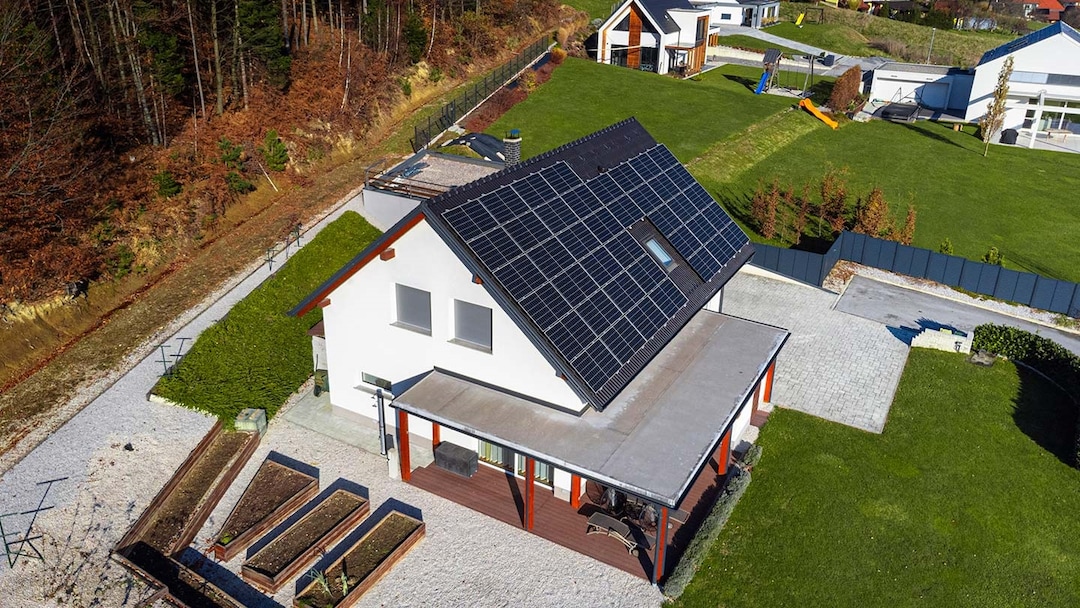Can you use a home equity loan to buy land?

The article is for educational purposes only. JPMorgan Chase Bank, N.A., currently offers home equity lines of credit (HELOCs) in select states and does not offer home equity loans in any state. Please talk with a Home Lending Advisor to see if HELOCs are available in your area. Any information described in this article may vary by lender.
Quick insights
- A home equity loan can be used to buy land for a homebuilding project or as an investment property, which may not be possible with traditional mortgages.
- This type of loan may have favorable rates and terms compared to other options but is secured by your home; there's a risk of losing it if you default.
- A clear plan for the land, awareness of development-related requirements and professional guidance can help borrowers succeed with a home equity loan.
If you're a homeowner, you're building equity (increasing how much of the home you own) with every mortgage payment. Home equity can be leveraged by the homeowner for many projects they might want to pursue. You can even use home equity to buy land, whether it's for a homebuilding project or intended as an investment.
In this article, we will describe the process of using home equity to buy land and compare this option to other financing methods. For those who are planning to build on this land, we'll also note special considerations related to zoning, permits and development.
Quick overview: How home equity loans work
Home equity loans are secured loans that use the homeowner's property as collateral for borrowing. To receive approval, the borrower submits documents proving their good credit score, favorable debt-to-income ratio, a minimum level of home equity and income history. Funds for the loan are distributed as a lump sum and repaid at a fixed interest rate, often over 30 years. Because of their similarity to traditional mortgages, home equity loans are sometimes referred to as "second mortgages."
How to use home equity to buy land
The key steps of using a home equity loan to buy land are consistent with other use cases: compare options, apply, use funds, repay. In fact, lenders may not inquire about the loan's purpose at all. Your home may be appraised as part of the approval process to confirm its current value and determine your maximum loan amount.
Home equity lenders generally allow you to borrow up to 80% of the home's value, minus the outstanding balance on your mortgage (if there is one). This means if you owned a $100,000 house with $70,000 in equity, you could potentially borrow up to $50,000 for your land-buying project. To show our work: 80% of the $100,000 total home value is $80,000. Subtracting the $30,000 remaining on the mortgage leaves $50,000 to be borrowed.
If you move forward with a home equity loan to buy land, the funds dispersed with your loan can be used to pay for any costs related to your project. This could include paying for the plot itself, hiring contractors, purchasing supplies or covering the cost of assessments.
Pros and cons of buying land with a home equity loan
As a secured loan, the risks are generally lower for home equity loan lenders and higher for borrowers. By having the borrower's home on the line as collateral, the lender has assurance that the cost of the loan will be covered regardless of the borrower's ability to make payments. This may mean better rates, terms and easier approval for borrowers, but also the very real risk of losing their existing home if their finances change or either investment becomes a liability.
Potential advantages of using a home equity loan to buy land
- Potentially lower interest rates than other options.
- Fixed interest rates create consistent payments.
- Less demanding approval criteria due to the secured nature of the loan.
Potential disadvantages of using a home equity loan to buy land
- You may lose your house if you default on the loan.
- Loan amount may be too low to buy property.
- Unpredictable changes in property value.
Other lending options for buying land
A borrower's needs will probably vary depending on their financial situation, as well as the nature of the project. While home equity lenders tend not to read deeply into a loan's purpose, borrowers may want to research all options. As alternatives to home equity loans, prospective land buyers may want to consider:
- HELOCs: A HELOC (home equity line of credit) is a flexible, revolving line of credit that can be drawn from and refreshed each time it's repaid. As with a home equity loan, using a HELOC to buy land requires using your home as collateral to qualify for the rates and terms.
- Construction loans: With this type of loan, the future home serves as the collateral, funds may be dispersed in stages and the interest rates may be higher than a home equity loan. These loans are often converted into a traditional mortgage after the project is complete. Chase does not offer this type of loan.
- Land loans: These loans are used to invest in land that won't immediately be used for a development project. The land itself serves as collateral in this scenario, and lenders may require a higher down payment and interest rate compared to home equity loans. Chase does not offer this type of loan.
- Personal loans: These multipurpose loans do not require collateral, meaning that neither your home, the new lot nor a future home yet to be built are used to secure it. Rates for these loans are generally higher than a home equity loan because of the perceived risk. Chase does not offer this type of loan.
Keep in mind that a traditional mortgage is not an option for buying land, as this loan type is reserved for properties that include an existing building.
Zoning, permits and future development considerations
Whether you're buying land with a home equity loan or another way, it's important to investigate zoning, permits and overall suitability of the plot for its desired use. The zoning for a plot of land will affect how it can be used and what types of structures can be built there. Permits are easy for new home builders to underestimate, and they may add unforeseen costs and time. Because these constraints vary widely by location, it can be helpful to enlist a real estate expert or legal advisor in preparation of your purchase.
Bottom line
If you have substantial equity in your existing home, you may be able to use a home equity loan to buy land, potentially at a lower interest rate than other loan options. When pursuing this option, it's important to have a clear, viable plan for how the land will be used and how you will repay your loan. Consider connecting with an experienced financial advisor before signing on the dotted line.



